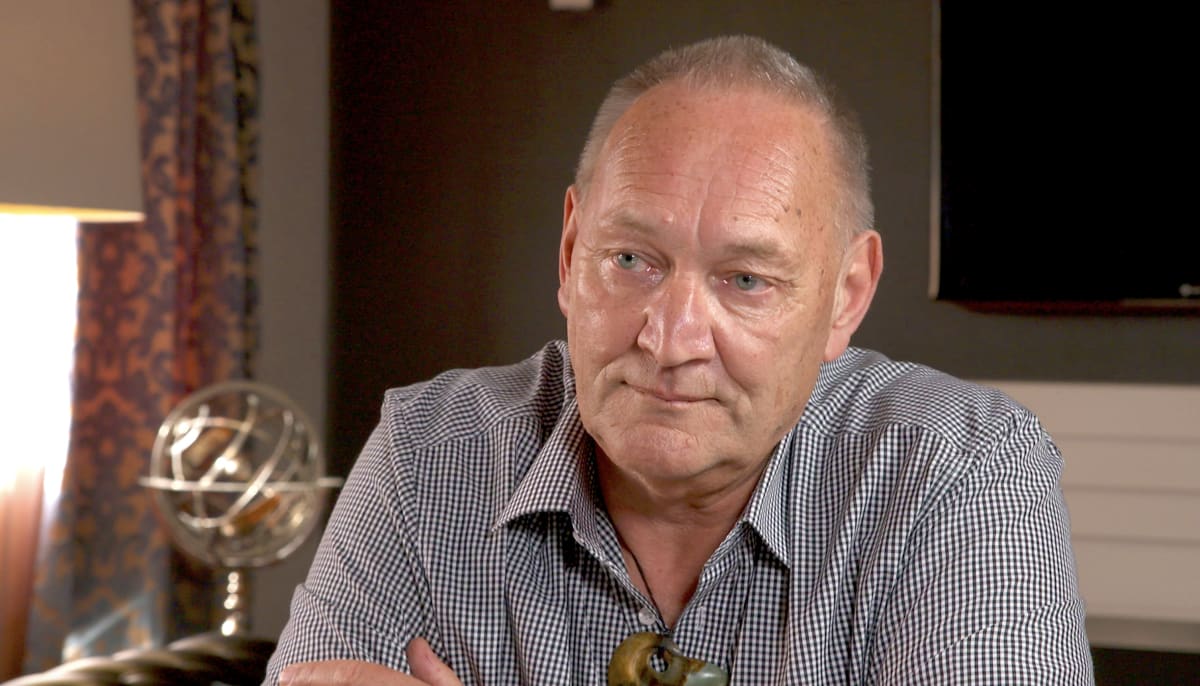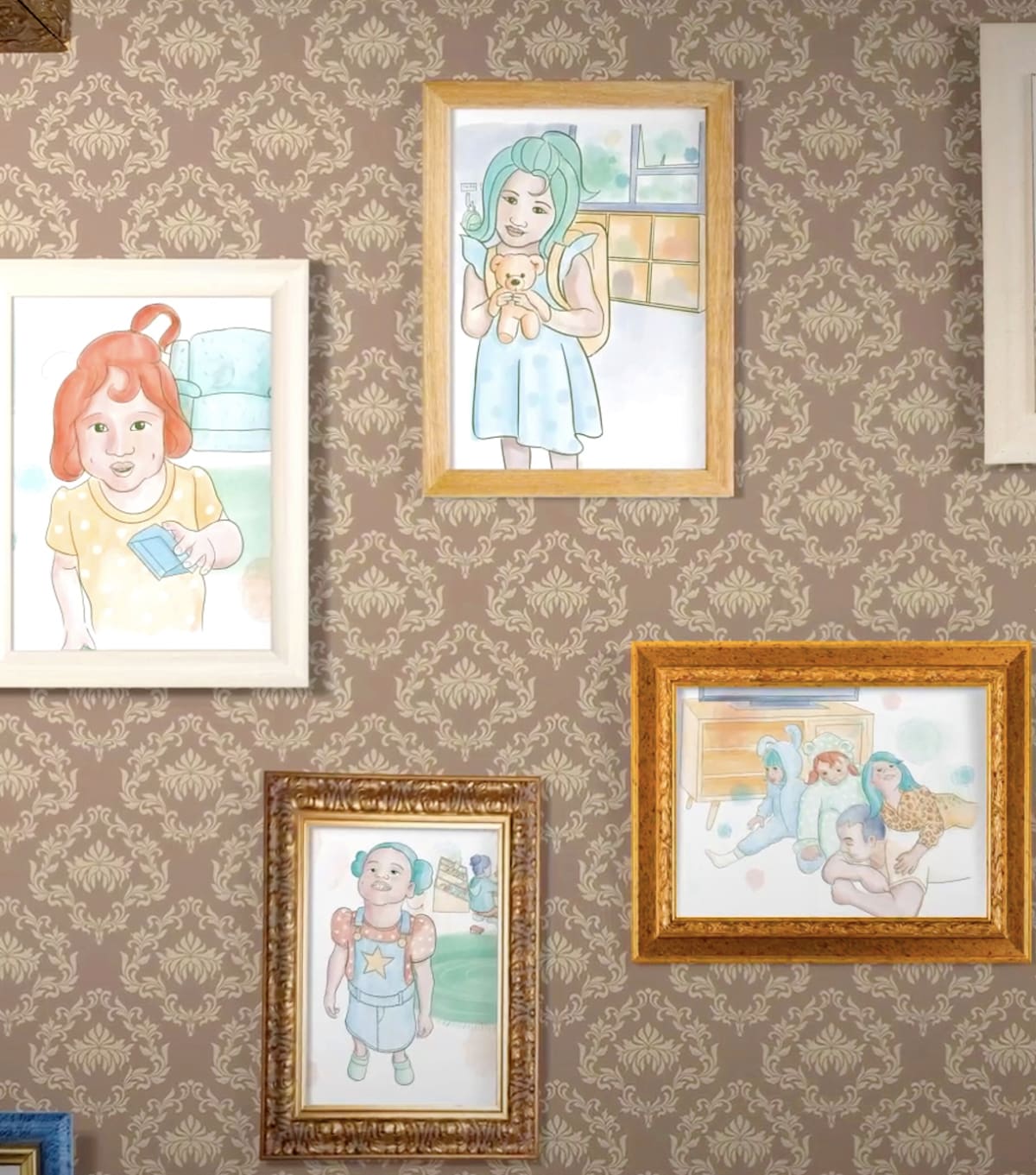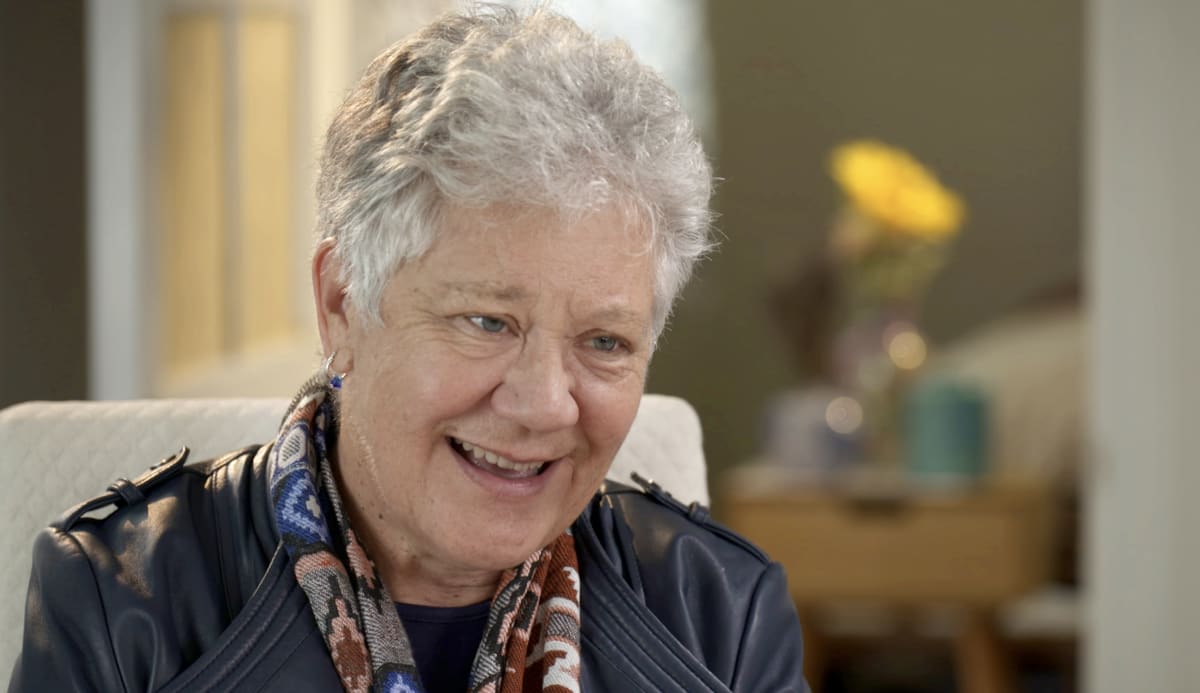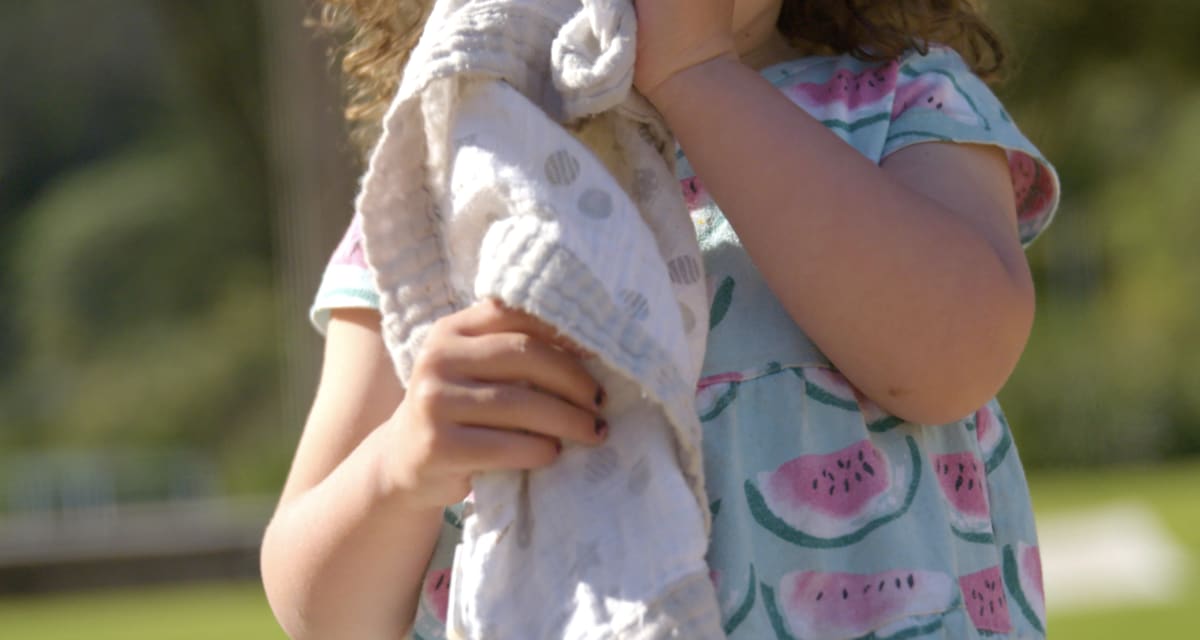Newsroom Investigates: Oranga Tamariki is being called to account yet again. It is now reviewing cases of ‘reverse uplift’, where tamariki Māori have been taken off non-kin Pākehā carers and returned to whānau, following a damning report from the chief Ombudsman. Peter Boshier’s investigation into the child protection agency stemmed from its handling of a case brought to light by Newsroom in 2020.
* WATCH the video story above and read a fuller version below *
It was a crisp, cloudless day when the two Oranga Tamariki workers came to take the tamariki away in the spring of 2020.
A large crowd of supporters – their school teachers, their friends – gathered at the house to say goodbye. As the children were strapped into car seats, they began to cry.
Their Pākehā foster carers of two and a half years tried to put on a brave face to make it easier on the children, but in the end the Oranga Tamariki staff were the only ones left with dry eyes.
The siblings would soon be on a plane to a different part of the country to live with extended whānau they had had limited contact with, far away from the home they’d been told would be theirs forever.
A November 2020 investigation by Newsroom into this “reverse uplift” caused immediate waves. Prominent social workers and former Ngāi Tahu chairman Tā Mark Solomon were outspoken in their disgust at the way Oranga Tamariki treated the foster carers and children. (Soon after publication, Crown Law, on behalf of Oranga Tamariki, persuaded a High Court judge to order Newsroom to remove that video investigation "Oranga Tamariki, the new wave of trauma" from our site and public view, on allegations that information in the story could possibly lead to identification of the children involved. Newsroom rejected those allegations and is appealing that ruling to the Court of Appeal, where a hearing is pending for possibly later this year.)

Now, 18 months later, Chief Ombudsman, Peter Boshier’s inquiry into the case backs the findings of Newsroom’s own investigation.
Boshier began his investigation after two complaints against Oranga Tamariki were laid – one by the Pākehā foster carers and one by the whānau the children were placed with – following the ‘reverse uplift’.
The whānau’s complaint centred on Oranga Tamariki’s failure to make adequate efforts to place the children with whānau, hapū or iwi connections when they were uplifted from their biological parents.
Newsroom has been given a copy of Boshier’s final opinion by the Pākehā foster carers on their complaint.
He calls out Oranga Tamariki for a laundry list of questionable behaviours, including submitting misleading and unbalanced information to the court, flawed decision-making around moving the children, and contravening the Oranga Tamariki Act.
Boshier recommends an independent reviewer carry out a comprehensive assessment of the children’s current placement with whānau including the children’s own preferences for the future.
Further, he recommends all documents be reviewed by people with appropriate expertise before they are submitted to court and Oranga Tamariki is now doing a file review of all similar “reverse uplift”.
Transitions and trauma
This story begins back in 2016 when the children were uplifted by Oranga Tamariki from their birth parents following family violence. They then lived with a temporary caregiver for more than a year while Oranga Tamariki says it tried to find “culturally appropriate placements” with “no success”.
The Ombudsman is scathing about these attempts, stating Oranga Tamariki did not meet its policy obligation to find whānau, hapū, iwi caregivers in the first instance.
Oranga Tamariki was about to split up the siblings when a Pākehā foster couple said they would care for them to prevent that happening, in a placement known as Home for Life.
After the siblings moved in with the couple, an Oranga Tamariki social worker assured the children this would be their forever home, and they would never have to move again.

They settled into life together, attending the local school, playing with their pets and having access visits with their mother.
That was, until a major shift in ideology at Oranga Tamariki saw the couple go from hero to zero overnight, and after two and a half years the tamariki were uplifted once again.
The foster couple were adamant they were set up; that Oranga Tamariki “distorted the facts of the situation to fit an agenda of transferring the tamariki to new caregivers.
“In an ideal world they would never have come to us in the first place,” the foster carers told Newsroom back in 2020. “They would have been placed with family. But they weren’t. No one wanted them. Oranga Tamariki were happy for us to have them and we changed our lives so we could look after them. Then they go and traumatise the kids again by moving them again.”
But behind the scenes the foster couple fought back, engaging a lawyer and submitting a complaint to the chief Ombudsman about the way they and the children had been treated by Oranga Tamariki.
Following Newsroom’s investigation, Minister for Children Kelvin Davis commissioned an internal investigation and less than three weeks later ordered an immediate halt to all “reverse uplifts” pending further investigation.
By February 2021, Oranga Tamariki had quietly changed its policy to emphasise that any transitions of children between caregivers must be handled with care and in accordance with the agency’s transition policy.
But none of the changes would fix the hurt that Oranga Tamariki inflicted that spring day in 2020.
Raft of recommendations in Ombudsman’s report
The word “failure” is peppered throughout the 17 page report, as well as descriptions of Oranga Tamariki’s actions that include “highly problematic” decision making and statements made by social workers about the foster carers as “clearly wrong.”
The report concludes with 10 recommendations directed at the child protection agency.
They include that Oranga Tamariki undertake an assessment of the children’s current placement as soon as possible, part of which involves finding out the children’s own preferences for where they want to live.
It also supports a “systemic review” of other reverse uplift cases.
Perhaps most damaging to the state agency’s reputation is that it must ensure all documents submitted to court are accurate, and are reviewed “at an appropriate level” before filing.
(When Oranga Tamariki makes a decision to uplift, it has to be approved by the court – which relies on the accuracy of the information provided by Oranga Tamariki.)
For the foster couple who lodged the complaint, it was an emotional moment to finally receive the report, after struggling for years to understand why they and the children had been set up as the fall guys for an agency hellbent on fulfilling its latest political and cultural aspirations at any cost.
“It’s been a rollercoaster of emotions. We’re just glad it’s out now and we’ve finally got the truth out. But we want some proof now that they’re going to do something about it,” they told Newsroom.

Attachment vs culture
The drive to return children to whānau followed Newsroom’s reporting in June 2019 of the landmark Hastings case when a young Māori mother resisted all attempts to “uplift” her baby after she give birth at the local hospital.
Newsroom’s investigations revealed that three pēpi Māori a week were being taken from their mothers at birth.
The following month the Government made a law change with the introduction of section 7AA. The legislation lays out the ways in which the state needs to uphold the right of tamariki Māori to be connected to their culture and whakapapa as part of its Te Tiriti commitments.
Before the policy pendulum swung towards favouring whānau caregivers, Oranga Tamariki pursued a policy it has now admitted was racist.
In 2016, former CEO of aged care provider Bupa, Grainne Moss, was brought in to helm a newly minted Ministry for Vulnerable Children Oranga Tamariki, a replacement for Child, Youth and Family, with the stated goal of providing “safe, forever homes” for vulnerable children.
The new child protection agency’s ideological position was clear, and one that reflected a long-standing legacy of treating children as parcels that can be moved around, one where “safety” was often a codeword for placing children with non-kin foster carers.
Then came our 2019 Newsroom investigation, the law change and eventually Moss’ resignation.
At the time Vivienne Martini, a highly qualified and experienced social worker, told Newsroom: “I think that 7AA is truly, truly aspirational and it has the potential to be absolutely transformational. But what I see in this is it’s become transactional, that the children are almost commodities in this whole drama.”
In response to the latest Ombudsman’s findings, Oranga Tamariki has already accepted culpability for its actions in this case, and acknowledged the decision to remove the children from the foster carers was influenced by a “narrow and flawed” understanding of section 7AA, and, “a failure to balance that with the need to maintain stability and certainty for these tamariki.”
Boshier’s report says Oranga Tamariki has agreed to conduct a review of tamariki Māori placed with non-whānau caregivers on an enduring basis and subsequently moved to whānau care between March 2021 and February 2022.
After this review, Oranga Tamariki will share the findings with Boshier and discuss the next steps, including an option to review cases back to July 2019 when section 7AA was enacted.
Courts misled?
The report includes an assessment from an independent expert reviewer, which refers to a wider practice within Oranga Tamariki deriving from a “simplistic belief that culture trumps all else and that practice is being driven by an ideological position.”
That reviewer, Dr Nicola Atwool, is an expert in attachment trauma and an associate professor of social and community work at the University of Otago.

Newsroom put the findings of the Ombudsman's report to Atwool for her professional opinion. She says the report highlights multiple and significant issues within Oranga Tamariki.
“What the Ombudsman uncovered in this case is serious. I mean, it’s bad. It’s malpractice. It’s abuse of power. He has found they didn’t act consistent with the legislation at that time.”
She says one of the most concerning aspects was misleading information making its way into court, meaning a judge did not have all the facts needed before making the decision to approve the uplift of the children. “What this report clearly identifies is that the decision was based on misleading and incomplete information. It wasn’t a balanced account. So essentially social workers were influencing the outcome by being selective. Now that’s not how the judicial process is supposed to work. The judicial process is supposed to work by all the parties, to a dispute, having the opportunity to present their evidence to the judge and the judge who is the expert in the law, makes what he considers or she considers to be the best decision possible in the circumstances. So what that says to me is that social workers have not got a good understanding of their role and the court’s role. That’s extremely dangerous,” says Atwool.
Allegations and accusations
In order to facilitate the urgent “reverse uplift”, Oranga Tamariki decided the children were at risk, levelling a number of accusations against the foster couple, including allegations of physical abuse and threats against the children, and an “unwillingness” to support the children’s engagement with their whānau and Māoritanga.
Now, 18 months on, Ombudsman’s report supports the foster couple’s complaints that they were set up to fail, and describes the accusations against them variously as “unreasonable” and “clearly wrong”.
Since the children were uplifted their contact with their former caregivers has been heavily restricted, so much so that the couple haven’t spoken to the children since June last year, in contravention of their access plan.

The foster couple told Newsroom their main concern is the children will think they abandoned them. Christmas presents the couple sent to the children were never delivered.
“They’ll think we don’t love them, that we just abandoned them. I don’t know what that will do to them. We can’t even talk to them and tell them we love them.”
Atwool says the way Oranga Tamariki treated the foster carers and the tamariki was disgraceful. “Words fail me. I struggle to understand how people could treat other human beings like that. And even if you had formed the view that the children did need to be moved, there were other ways in which you could have done that. And you certainly could have maintained relationships.”
She says the role of professional social work is to work alongside and with people, but that what happened in this case is “the absolute opposite”. “They framed them up. And then severed contact. There is no way you can square that away as being in the interest of the children. No amount of cultural connection will take away the children’s loss of some people who were important to them.”
Her concerns are echoed in the Ombudsman’s report where he writes that once the children had been placed with the foster couple, “…it was not something that could simply be undone.”
“The evidence is clear that the children – whose short lives to date had been characterised by repeated trauma and disruptions – had finally settled and formed strong primary attachments to the (foster carers) and were able to maintain contact with their (region in Aotearoa)-based parents and other siblings. Once the (other region)-based whānau were located, subsequent decision making around the level of involvement with the whānau needed to be made with this context front of mind.”
Oranga Tamariki falls on its sword
In the report, Oranga Tamariki, which is currently helmed by interim chief executive Chappie Te Kani, has already responded to much of the Ombudsman’s findings, including agreeing to a full apology to both the foster carers and the whānau caregivers for not conducting a more thorough search for whānau.
Oranga Tamariki has also told the Ombudsman it intends to notify the Family Court of his report, in light of his findings that Oranga Tamariki acted “unreasonably” when social workers included “unbalanced” and “misleading” statements in documents submitted to the Family Court.
But Atwool doubts whether reform of Oranga Tamariki is even possible now.
After decades holding out hope that the pathway for robust social work practice and child protection within a Tiriti framework that was laid out so clearly in 1989’s landmark Puao-Te-Ata-Tu report, she is now losing faith.
“If you go back to the original report that gave us the 1989 legislation, Puao-Te-Ata-Tu, it’s all in there, and the difficulty has been getting a service that’s remained predominantly Pākehā to make this work in the way that was envisaged in Puao-Te-Ata-Tu. I have remained hopeful that that could happen.
“I’m now losing hope because for 30 years we’ve seen this churn of challenges, of reviews, of people really spelling out the detrimental impact and the need for things to happen. And we’re still stuck.”
“I’m beginning to wonder if we don’t actually need to rebuild from scratch, make people reapply for their jobs and only select people who can demonstrate that they have the knowledge and the skill to work in a manner that is consistent with the legislation.”
Newsroom asked the Ombudsman for an interview. He thanked us for the opportunity but declined, saying, “I have decided to let my opinion on this complaint speak for itself so I will not be doing any interviews.”
In the report the Ombudsman told the foster carers he intended to publish a summary of the case “that focuses on the general findings and actions that Oranga Tamariki is proposing to take to avoid a case such as this happening in the future.”
* Made with the support of the Public Interest Journalism Fund *








